
What It Will Take to Lead the New Generation
February 9, 2025
Lara Dollens
WHY THIS MATTERS NOW
Hybrid work is now the norm, mental health is a top workplace priority, and companies are being held accountable when they fail to address societal issues. Conversations around equity and inclusion are evolving through social movements, while rapid advancements in technology—like AI—are forcing companies to adapt at unprecedented speeds. Add to this the complexities of a global workforce, and it’s clear: the workplace isn’t just changing—it’s transforming.
Amid this transformation, the Born Digital generations are stepping into leadership roles and reshaping the way we work. These generations—Millennials and Gen Z—are known for their unmatched digital fluency, innovation, and deep commitment to purpose. They’re not just the workforce of tomorrow—they’re already leading today. And their impact is undeniable.
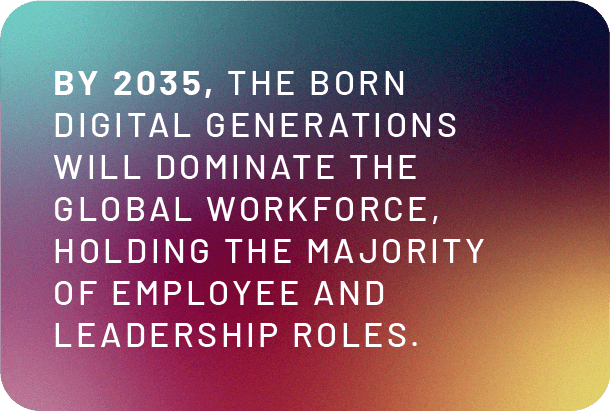
By 2035, the Born Digital generations will dominate the global workforce, holding the majority of employee and leadership roles. Their influence is already being felt in profound ways:
- $1.9 trillion in potential profits: Emerging leaders from these generations are projected to drive $1.9 trillion in additional corporate profits annually, thanks to their ability to leverage technology and navigate complex challenges.
- Stronger engagement and resilience: Organizations with high Born Digital populations report higher engagement, greater adaptability, and stronger financial performance.
- The drivers of transformation: Their digital expertise and innovative thinking are shaping the next wave of workplace evolution, proving that leadership isn't defined by tenure—it's defined by perspective.
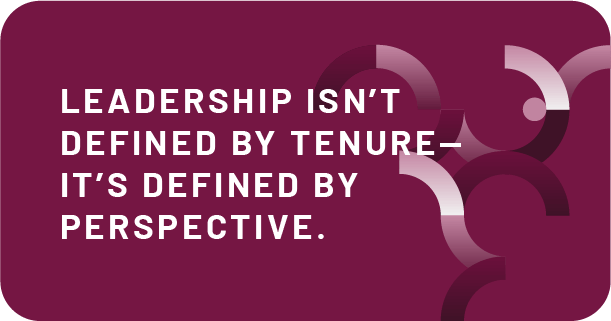
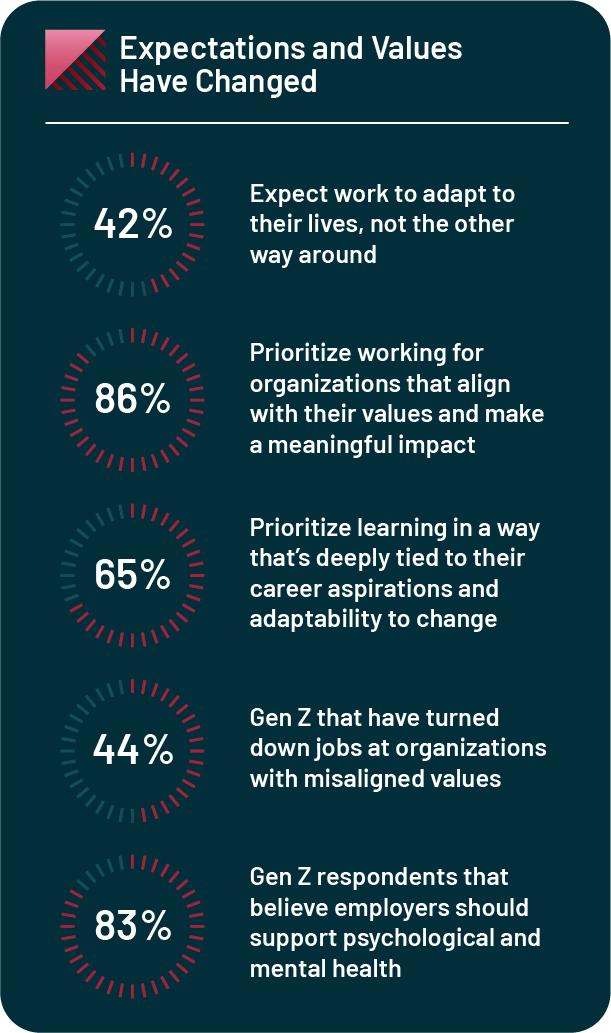
EXPECTATIONS AND VALUES HAVE CHANGED
- Flexibility isn't a perk—it's a baseline: Growing up with technology that allows for constant connectivity, these generations expect work to adapt to their lives, not the other way around. For 42%, work-life balance is their top priority, making flexibility in schedules and remote work essential. They value outcomes over rigid schedules.
- Purpose matters: Having grown up in a world of social and environmental challenges, 86% of Born Digital workers prioritize working for organizations that align with their values and make a meaningful impact. Purpose isn’t just about personal fulfillment—it’s about contributing to something larger.
- Growth must be intentional and accessible: Millennials and Gen Z prioritize learning in a way that’s deeply tied to their career aspirations and adaptability to change. With 65% eager for professional development, they’re not waiting for opportunities—they expect organizations to provide clear pathways for skill-building and leadership growth.
- Ethics drive every decision: In a world where transparency and accountability are demanded, 44% of Gen Z have turned down jobs at organizations with misaligned values. They expect their employers to actively live their social responsibilities.
- Well-being is redefined as success: 83% of Gen Z believe employers should support psychological and mental health in substantial ways—such as work schedules and environments.
LEADERSHIP CHALLENGES ARE GROWING
- Critical leadership gaps: Only 20% of organizations feel confident in their leadership bench strength, leaving many unprepared to fill critical roles.
- Retention is a growing concern: 79% of HR leaders predict it will be harder to retain talent in 2025 than in 2024.
- Trust in leadership is eroding: Only 29% of employees say they trust their immediate managers, highlighting a growing leadership credibility crisis
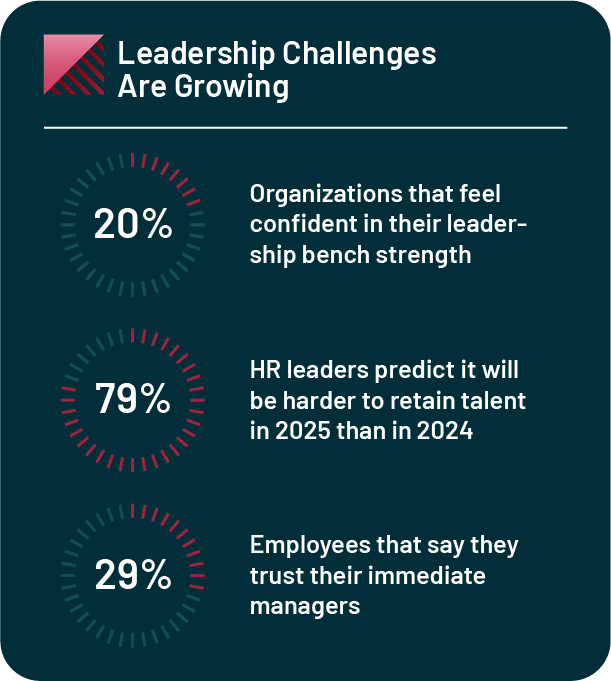
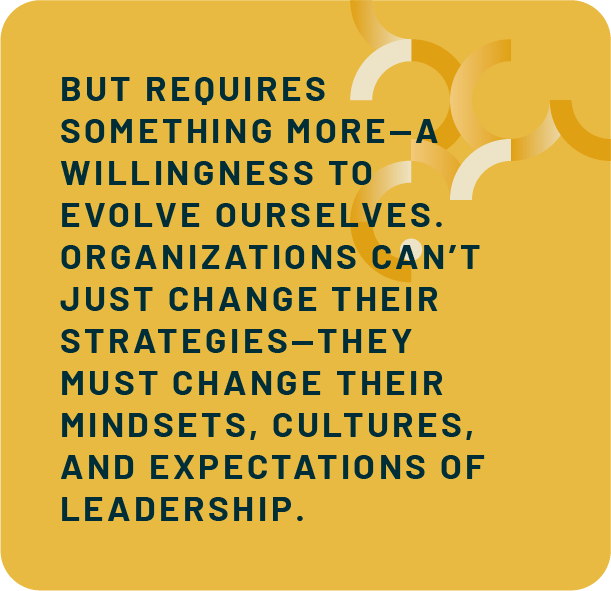
WE HAVE AN OPPORTUNITY
This shift in expectations isn't about entitlement—it's about redefining what work can and should be. The Born Digital generations expect their workplaces to reflect the interconnected, fast-changing, and purpose-driven world they grew up in.
Are we ready to embrace their journey to leadership? Are we prepared to attract, develop, and retain this new wave of leaders by meeting their needs for purpose, flexibility, and a sense of belonging? Or will we cling to outdated models and risk losing not only their trust but also their potential to lead us forward?
The opportunity to guide and empower these leaders starts with understanding their motivations. But it also requires something more—a willingness to evolve ourselves. Organizations can’t just change their strategies—they must also change their mindsets, cultures, and expectations of leadership.
IT WILL TAKE DELIBERATE EFFORT
Striking the right balance won’t happen by accident. On one hand, we have to let go of being “the experts” in every room. Leadership isn’t having all the answers—our focus now is on creating a space where new voices feel safe to ask bold questions, take risks, and bring fresh ideas forward. That starts with stepping back, making room, and challenging long-held assumptions about what success looks like. Only then can we learn alongside the new generation of leaders.
But leading this shift also means knowing when to step up—sharing the wisdom we gained through experience while guiding with empathy. It means leading by example, proving that vulnerability is a strength, not a weakness, and providing a steady presence in times of uncertainty.
And leadership isn’t just about encouragement. It’s about absorbing the weight of difficult decisions, taking the criticism others can’t, and standing firm when challenges arise.
Now more than ever, leadership isn’t about standing above—it’s about standing beside.
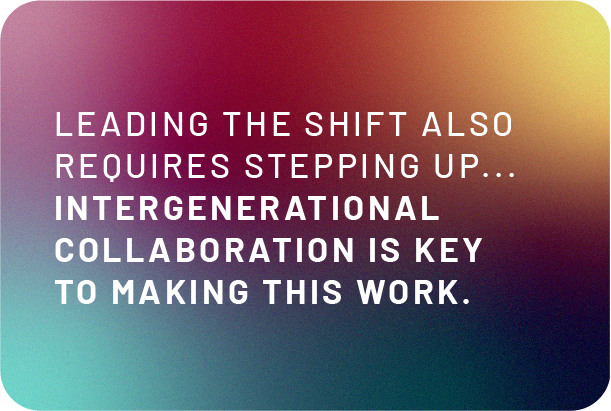
INTERGENERATIONAL COLLABORATION IS THE KEY
When younger and more experienced leaders work together, organizations unlock the best of both worlds: the fresh perspectives, energy, and digital fluency of emerging talent paired with the strategic expertise, context, and steadiness of seasoned ones. Rather than one generation taking the lead over another, we can build workplaces where wisdom meets innovation—creating something stronger than either could achieve alone.
It’s time to rethink how we empower, enable, and elevate this generation of leaders. It’s time to identify where our organization’s culture and leadership strategies need to change. And it’s time to offer practical tools that ensure we don’t just lead them but lead with them.
What steps are you taking today to build bridges between generations in your workplace? Because the organizations that embrace this collaboration won’t just survive change—they’ll be the ones shaping what comes next.
The question isn’t whether we can evolve—it’s whether we’re willing to build workplaces where leadership is shared, innovation is constant, and success belongs to everyone.
